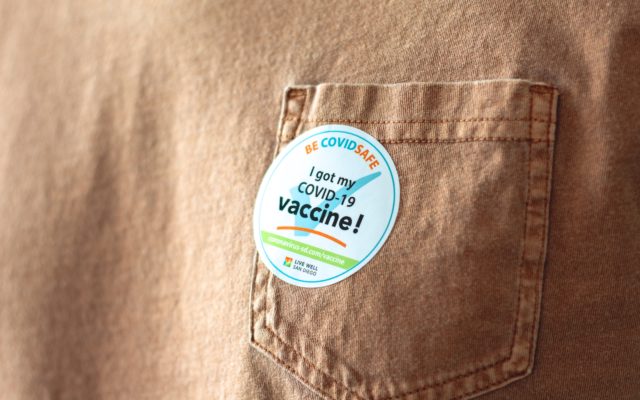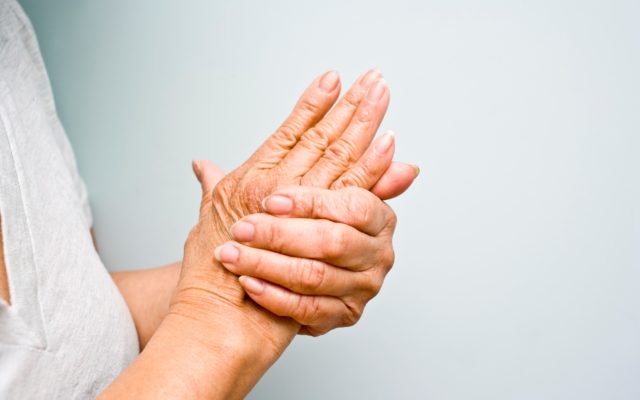
Now Scheduling Primary Care Appointments Online. Book Now.
Mental Health Q&A with Dr. Kachman and Dr. Landesman
We recently sat down with two of Oaklawn’s psychiatrists, Dr. Andrea Landesman and Dr. Michelle Kachman, to discuss mental health services at Oaklawn. Providing both inpatient and outpatient services, mental health support plays an important role in a patient’s overall well-being and quality of life.
What’s the difference between inpatient and outpatient services?
At Oaklawn, inpatient services are provided at Oaklawn Hospital and our outpatient services are located offsite at our Bear Creak facility. Although both services provide therapy and medication management, inpatient services are more intensive (the patient is admitted to the hospital for care versus making an appointment with a provider at Bear Creek). Patients receiving inpatient care will see a psychiatric provider daily for rapid medication changes and have multiple therapy groups a day including education, coping skills, psychotherapy, and activity therapy. One of the benefits of inpatient therapy is that it decreases feelings of isolation for the patient by allowing him/her to see that he/she is not the only one struggling with mental health. kachman
Outpatient appointments, on the other hand, vary according to the patient’s needs. For example, a patient might meet with their provider weekly or every three months. Whereas outpatient recipients can choose to only receive medication or therapy if desired, a combination of both is recommended in an inpatient setting. Research shows people get better faster by using therapy and medication compared to either one individually.
What is the difference between a psychologist, psychiatrist and a counselor?
A psychiatrist is a physician/medical doctor, either a MD or DO, who specializes in mental health and they prescribe medication.
A psychologist is a doctorate level (PhD/PsyD) mental health provider. They can work directly with patients or in research settings.
A counselor is a general term referring to a person offering some sort of therapy/mental health support. It refers to a wide range of different masters level degrees.
What are some of the most common conditions you treat?
We treat a wide range of psychiatric conditions, some of which include anxiety, depression, substance abuse, bipolar disorder, and psychosis.
Do you see patients of all ages?
On the inpatient unit we see adults of all ages, 18 +. There is no maximum cut off. We also see children and adults in our outpatient clinic.
What would you say are the biggest misconceptions about mental health?
Some think that people can just get over it, pick yourself up by your boot straps, or that you can simply choose not to be depressed. However, mental health is a medical problem associated with biological changes in hormones and brain chemicals, and it does not discriminate with race, socioeconomic status, gender, or age. Mental health problems do not equate to being “crazy” and seeking treatment does not indicate weakness.
It’s important to note that not all mental health is severe and not everyone who has mental illness needs to be hospitalized. For those who do need inpatient support, the majority of patients are overwhelmed with outpatient stressors and need short-term intensive treatment/medication to return to functioning. Psychiatric hospitalization is short term, and the average length of stay is 5-7 days.
What are some of the key indicators that someone should seek help from a professional, whether for themselves or a loved one?
Inpatient criteria includes:
- Failure of outpatient care/progress
- Danger to self or others
- Feeling “unsafe”
- Inability to function (unable to work, sleep, eat or care for oneself)
If you are concerned about someone’s mental health and they refuse to get treatment then you can request that police complete a well-fare check, and/or complete a petition indicating danger to self or others to begin involuntary commitment proceedings to a psychiatric unit. It is important to be aware that a person has a right not to receive mental health services until they become a danger to self/others, or have marked inability to care for oneself.
Do you think that people can benefit from your services even when things are going well or if they don’t have any specific symptoms?
Absolutely. For example, outpatient services can offer couples therapy to work on small issues before they become big issues. Sometimes people will seek out help to prevent mental health decline during major life changes like going through a divorce, getting remarried/new family dynamics, child/parent terminal diagnosis, etc.
What are some of the benefits of taking a more proactive approach to mental health?
Reaching out to outpatient providers early helps prevent the extent of decline that could result in inpatient care. Mental health decline can lead to many physical/medical changes that include the following:
- Pain/headaches
- GI issues such as reflux, indigestion, and stool changes
- Weight changes
- Sleep changes
- Cardiac/blood pressure issues
- Dizziness
If someone is interested in making an appointment for outpatient services, do they need a referral?
Yes, a referral is necessary.
If someone feels they need inpatient assistance, what are their next steps?
Individuals seeking inpatient assistance should go to the closest emergency room for evaluation. Prior to coming into a psychiatric unit a patient must be medically cleared in the emergency room. The emergency room will evaluate for level of care required and can seek out placement in an appropriate psychiatric unit or refer to outpatient resources.
MENTAL HEALTH & COVID-19
How have you seen COVID impact society from a mental health perspective?
COVID has decreased access to outpatient care. We have seen an increased number of patients who have accidentally gone off of their medication or declined because of decreased outpatient services/therapy. On a positive note, we have also seen more patients utilize our telemedicine services.
Has isolation had an impact on people’s mental health?
COVID has caused people to feel more isolated and therefore increased risk of mental health disorders. Anxiety disorders are obviously also on the rise.
How can enlisting the help of Oaklawn’s mental health services ease the stress that many are experiencing because of COVID?
Oaklawn has a wide range of services available to increase one’s ability to function and learn how to better manage challenging situations with decreased stress.
What are some basic coping techniques people can do at home to help make today’s circumstances a little bit easier to deal with?
Some basic things you can do at home to help manage stress include daily affirmations, deep breathing techniques, exercise, mindfulness, yoga, and thought restructuring. Keeping a daily routine and safely nurturing existing relationships can also go a long way.
Given social distancing requirements, are you still seeing patients in person or is there more of an emphasis on virtual appointments?
On the inpatient unit all providers are in person. In our outpatient clinic, we typically do initial assessments in person and then virtual appointments are an option.
Some might question whether or not meeting virtually is as effective as in-person. What are some of the benefits of virtual appointments?
Some evidence suggests telemedicine is not necessarily inferior. It offers ease of use, limited commute time for the patients, and is easier for those with limited time off work.
What do you think is the biggest challenge your specialty has been presented with because of COVID?
The biggest challenge is that patients are not seeking out care because of fear of exposure, which increases the risk of decline. Patients have also struggled with medication availability due to the inability to follow-up with outpatient providers. However, at our clinic our telemedicine platform has afforded us an opportunity to reach those individuals. Even patients who are not necessarily tech savvy are able to use our telemedicine platform with ease. We’ve found that they even prefer it over face-to-face appointments during the pandemic.
MENTAL HEALTH & SELF-HELP
Self help seems to be a trending topic. Why would you encourage someone to seek help from a professional instead of just taking a self-help approach?
It is common to try and help yourself, on your own, before seeking treatment; however, it is important that people recognize when self-help is not effective and subsequently reach out for professional assistance.
Do you think that the two can go hand-in-hand?
Yes, patients can benefit from both.
What can a professional provide that a self-help resource can’t?
Seeking help from a professional means that you’re working directly with someone who can offer an objective opinion, has experience in treating the condition, and can prescribe medication when necessary.

